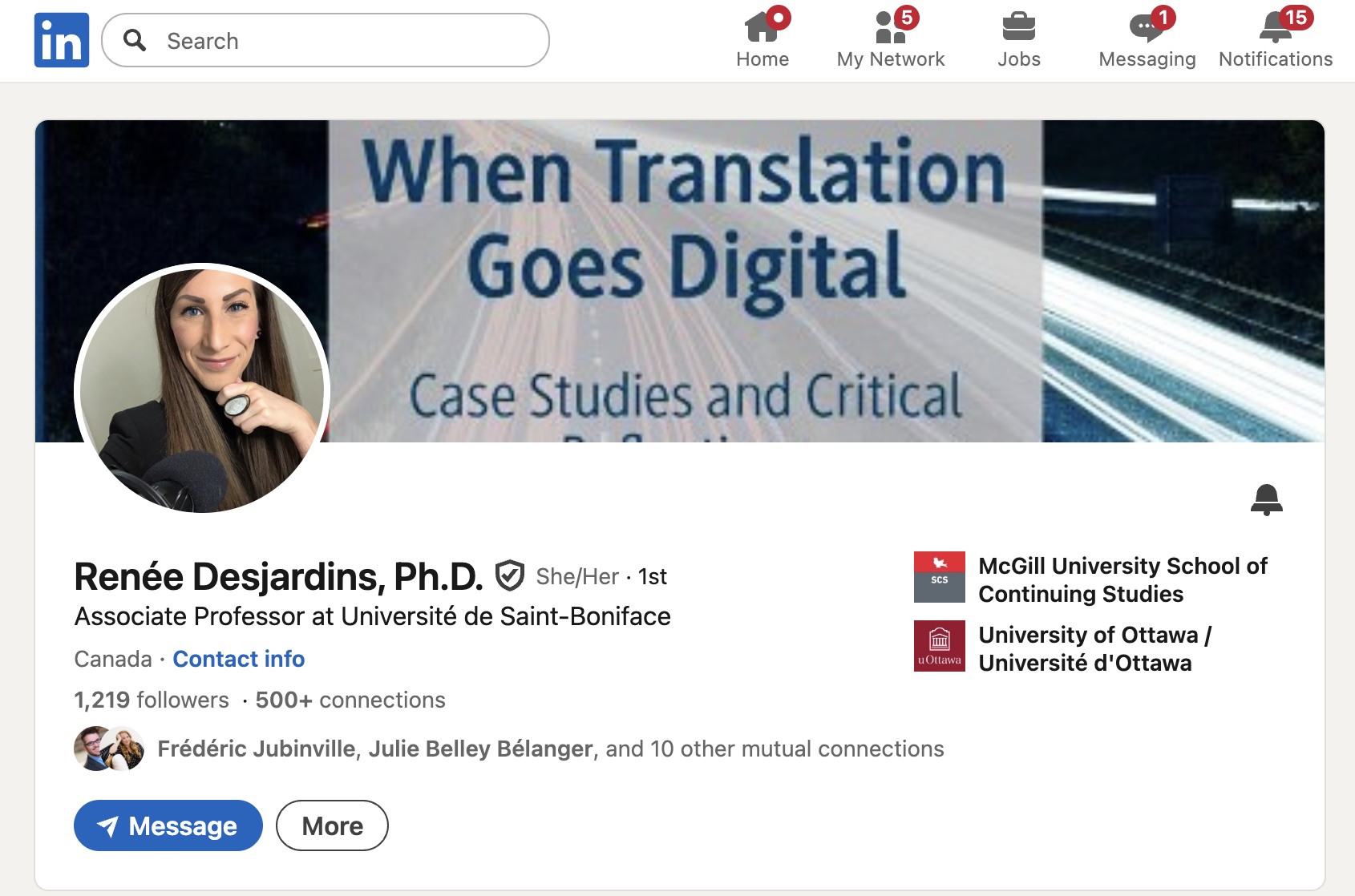Renée Desjardins, professeure à l’École de traduction, a publié sur Linkedin un excellent billet. Titulaire non pas d’une mais de deux subventions de recherche du Conseil de recherche en sciences humaines du Canada en l’espace de quelques années, elle est particulièrement bien placée pour expliquer les enjeux de notre mobilisation actuelle et les défis que nous rencontrons en tant que chercheurs à l’Université de Saint-Boniface.
Avec son autorisation, nous reproduisons ici son billet.
I’m choosing to write this in English for very deliberate reasons, one being reach and also because I want monolingual English-speaking colleagues to understand some of the challenges we face as academics in smaller institutions in linguistic minority contexts.
In May 2025, the APPUSB (the USB’s faculty union) voted almost unanimously for a strike mandate, this following nearly a year of negotiations with the university’s admin that have now seemingly reached an impasse. My colleague and the APPUSB’s current president, Prof. Patrick Noël, was interviewed by Radio-Canada’s Godlove kamwa to talk about what’s at stake and why the union voted so strongly in favour of the strike mandate. You can find the interview (en français) here (timestamp: 12:32): https://lnkd.in/g8Ymsmwj
So what are the issues? Well, most notably, faculty are paid about 84% of what colleagues with equivalent profiles and credentialing are paid at the province’s two other anglophone universities, the University of Manitoba and the University of Winnipeg. While it’s true that we are a smaller institution, smaller doesn’t mean fewer courses taught (the opposite: USB’s faculty teach more credits per term), nor does it mean fewer skills (the opposite: we deploy our skillsets in *both official languages* far more frequently and out of necessity than our colleagues at UofM and UofW; where else do you get paid LESS for being able to work in multiple languages?). We also do not benefit from the same breadth of support services (to be clear: this is not a reproach towards the USB’s support staff, who are helpful and invaluable). To give one example: while myself and a few other colleagues hold Tri-Council grants, our research office directorate currently sits vacant, which adds significantly to our administrative load. UofW and UofM have multiple research officers to assist with grant writing, grant management, and other related research tasks.
While some may say that USB is a « small player » in Manitoba’s research landscape, I would argue we play a critical role. Our research paints a more complete picture of what is happening in the province, including in education, language rights, and access to social services. We are often the researchers Radio-Canada Manitoba calls upon when expertise is needed in French-language reporting. As the demolinguistic profile of the province shifts, *more* not *less* language representation is essential. Finally, as previously mentioned, USB’s faculty hold Tri-Council funding (some of the most competitive in the country) among other grants, so we are certainly on par with our colleagues at the other Manitoban universities.
Student outcomes are directly linked to the working conditions of faculty. This isn’t just about salary; it’s about educating future citizens and preserving and sustaining a vibrant francophone future.
Source: https://www.linkedin.com/feed/update/urn:li:activity:7341943524264767488/


